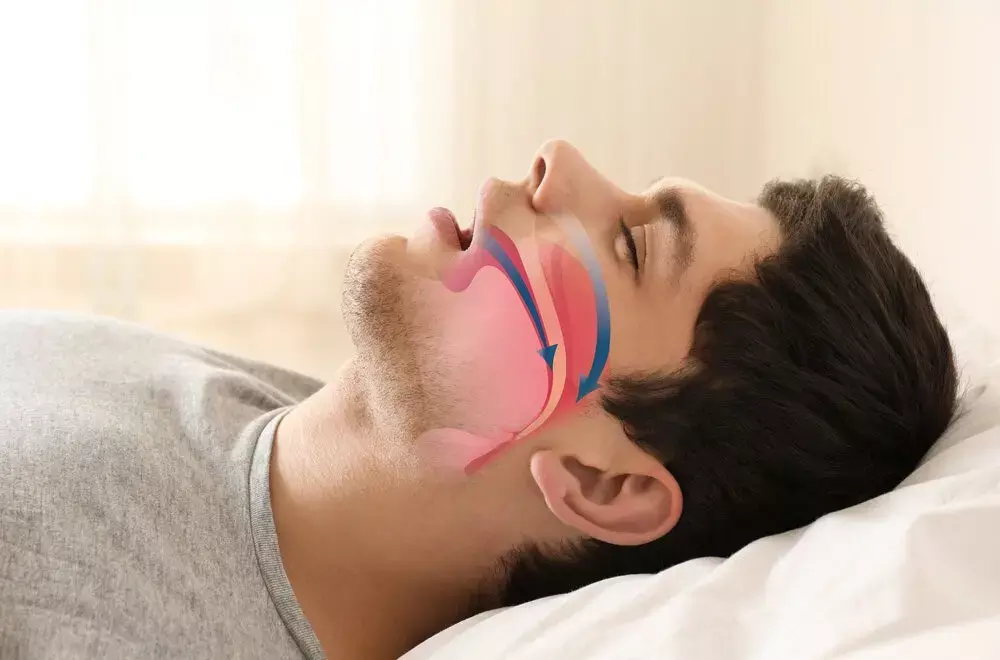- Home
- Medical news & Guidelines
- Anesthesiology
- Cardiology and CTVS
- Critical Care
- Dentistry
- Dermatology
- Diabetes and Endocrinology
- ENT
- Gastroenterology
- Medicine
- Nephrology
- Neurology
- Obstretics-Gynaecology
- Oncology
- Ophthalmology
- Orthopaedics
- Pediatrics-Neonatology
- Psychiatry
- Pulmonology
- Radiology
- Surgery
- Urology
- Laboratory Medicine
- Diet
- Nursing
- Paramedical
- Physiotherapy
- Health news
- Fact Check
- Bone Health Fact Check
- Brain Health Fact Check
- Cancer Related Fact Check
- Child Care Fact Check
- Dental and oral health fact check
- Diabetes and metabolic health fact check
- Diet and Nutrition Fact Check
- Eye and ENT Care Fact Check
- Fitness fact check
- Gut health fact check
- Heart health fact check
- Kidney health fact check
- Medical education fact check
- Men's health fact check
- Respiratory fact check
- Skin and hair care fact check
- Vaccine and Immunization fact check
- Women's health fact check
- AYUSH
- State News
- Andaman and Nicobar Islands
- Andhra Pradesh
- Arunachal Pradesh
- Assam
- Bihar
- Chandigarh
- Chattisgarh
- Dadra and Nagar Haveli
- Daman and Diu
- Delhi
- Goa
- Gujarat
- Haryana
- Himachal Pradesh
- Jammu & Kashmir
- Jharkhand
- Karnataka
- Kerala
- Ladakh
- Lakshadweep
- Madhya Pradesh
- Maharashtra
- Manipur
- Meghalaya
- Mizoram
- Nagaland
- Odisha
- Puducherry
- Punjab
- Rajasthan
- Sikkim
- Tamil Nadu
- Telangana
- Tripura
- Uttar Pradesh
- Uttrakhand
- West Bengal
- Medical Education
- Industry
Quality-of-life improves 48-months post-adenotonsillectomy in kids with sleep apnea

According to recent research, it has been observed that children with sleep disordered breathing (SDB) did not show significant gains in behavior either at 6 months or 48 months post-adenotonsillectomy. However, sleep and quality of life were normalized at 6 months post-adenotonsillectomy.
The study is published in the Journal of Sleep Medicine.
Long term follow-up studies (>12 months) of changes in behavior and quality-of-life (QoL) in children with sleep disordered breathing (SDB) post-adenotonsillectomy are limited and there is a lack of consensus in the reported findings.
Therefore, Kurt Lushington and colleagues from the University of South Australia, Adelaide, Australia conducted the present study with the aim to evaluate children's sleep, QoL and behavior at baseline and 6 months and 48 months post-adenotonsillectomy for clinically diagnosed SDB.
This prospective longitudinal study of children aged 3-12 years recruited from a Children's Hospital otolaryngology clinic compared polysomnographic parameters, behavior (Child Behavior Checklist; CBCL) and QoL (OSA-18) at baseline, 6 months and 48 months post-adenotonsillectomy and compared these parameters to healthy non-snoring controls recruited from the general community at the same time points.
The study revealed the following findings-
- Sixty-four children completed sleep, behavior and QoL assessments (SDB = 20M/9F, Controls = 18M/17F) at all three time points.
- Sleep and ventilatory parameters significantly improved in children with SDB with minimal residual obstruction evident at 48 months post-adenotonsillectomy.
- Compared to baseline, OSA-18 scores significantly improved post-adenotonsillectomy in children with SDB and were equivalent to the scores of controls at 6 months and 48 months post-AT.
- No significant improvement was observed in behavior in children with SDB post-adenotonsillectomy over the same time period.
Hence, the authors concluded that "baseline deficits in sleep and QoL in children with SDB were normalized at 6 months post-adenotonsillectomy and gains were maintained at 48 months post-adenotonsillectomy. Children with SDB did not show significant gains in behavior either at 6 months or 48 months post-adenotonsillectomy."
Dr. Nandita Mohan is a practicing pediatric dentist with more than 5 years of clinical work experience. Along with this, she is equally interested in keeping herself up to date about the latest developments in the field of medicine and dentistry which is the driving force for her to be in association with Medical Dialogues. She also has her name attached with many publications; both national and international. She has pursued her BDS from Rajiv Gandhi University of Health Sciences, Bangalore and later went to enter her dream specialty (MDS) in the Department of Pedodontics and Preventive Dentistry from Pt. B.D. Sharma University of Health Sciences. Through all the years of experience, her core interest in learning something new has never stopped. She can be contacted at editorial@medicaldialogues.in. Contact no. 011-43720751
Dr Kamal Kant Kohli-MBBS, DTCD- a chest specialist with more than 30 years of practice and a flair for writing clinical articles, Dr Kamal Kant Kohli joined Medical Dialogues as a Chief Editor of Medical News. Besides writing articles, as an editor, he proofreads and verifies all the medical content published on Medical Dialogues including those coming from journals, studies,medical conferences,guidelines etc. Email: drkohli@medicaldialogues.in. Contact no. 011-43720751


